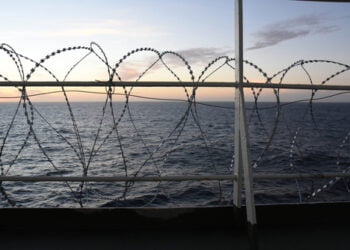According to NorthStandard, bulkers and combination carriers loading high-density bulk cargoes in Brazil must undergo a vetting regime following maritime authority standards.
All bulk carriers and combined ore-oil or ore-bulk-oil (OBO) carriers aged 18 years or older from the keel laid, calling at Brazilian ports to load solid bulk commodities with specific weight equal to or greater than 1.78 t/m3, such as iron ore, bauxite, manganese and phosphate, are required to pass a condition survey. This survey is conducted by a classification society other than the one rating the vessel in her class or a DPC-accredited certification company.
As explained, bulkers and combined carriers of any age whose total heavy bulk load does not exceed 30% of their deadweight tonnage are exempt from this survey.
Scope of survey
The condition survey consists of three key aspects:
- Documentary review to ensure compliance with international conventions and regulations that the Brazilian government has signed and to verify the class status with any outstanding recommendations, along with evidence of ship registry, ownership, and P&I insurance, including pollution and wreck removal covers.
- Visual structural inspection of internal structures and compartments, cargo holds, ballast tanks, double bottom and top side tanks (wing tanks) and fore peak tanks at the surveyor’s discretion. This includes spot thickness gauging of various points of the ship structure and plating based on measurements recorded at the last dry-docking.
- Watertightness check of cargo holds or tanks on the main deck, with particular attention to the coamings, hatch covers, manholes, and their closing devices and sealing gaskets.
Costs
In addition to transportation and ultrasonic thickness measurement (UTM) costs and fees charged by the shipping agency and the inspector, DPC charges a condition survey validation fee of BRL 572, payable through a federal tax collection bank slip.




























































